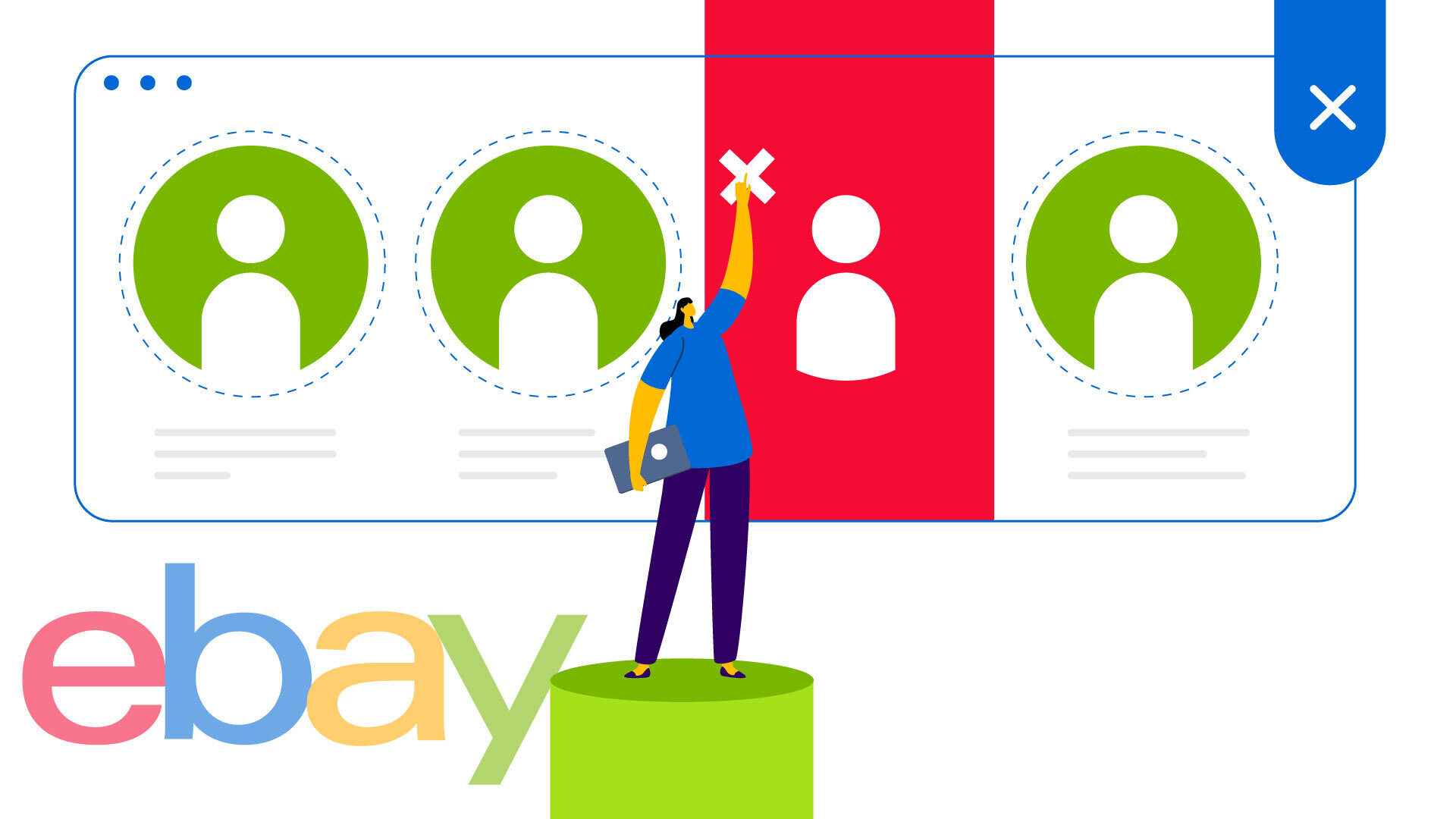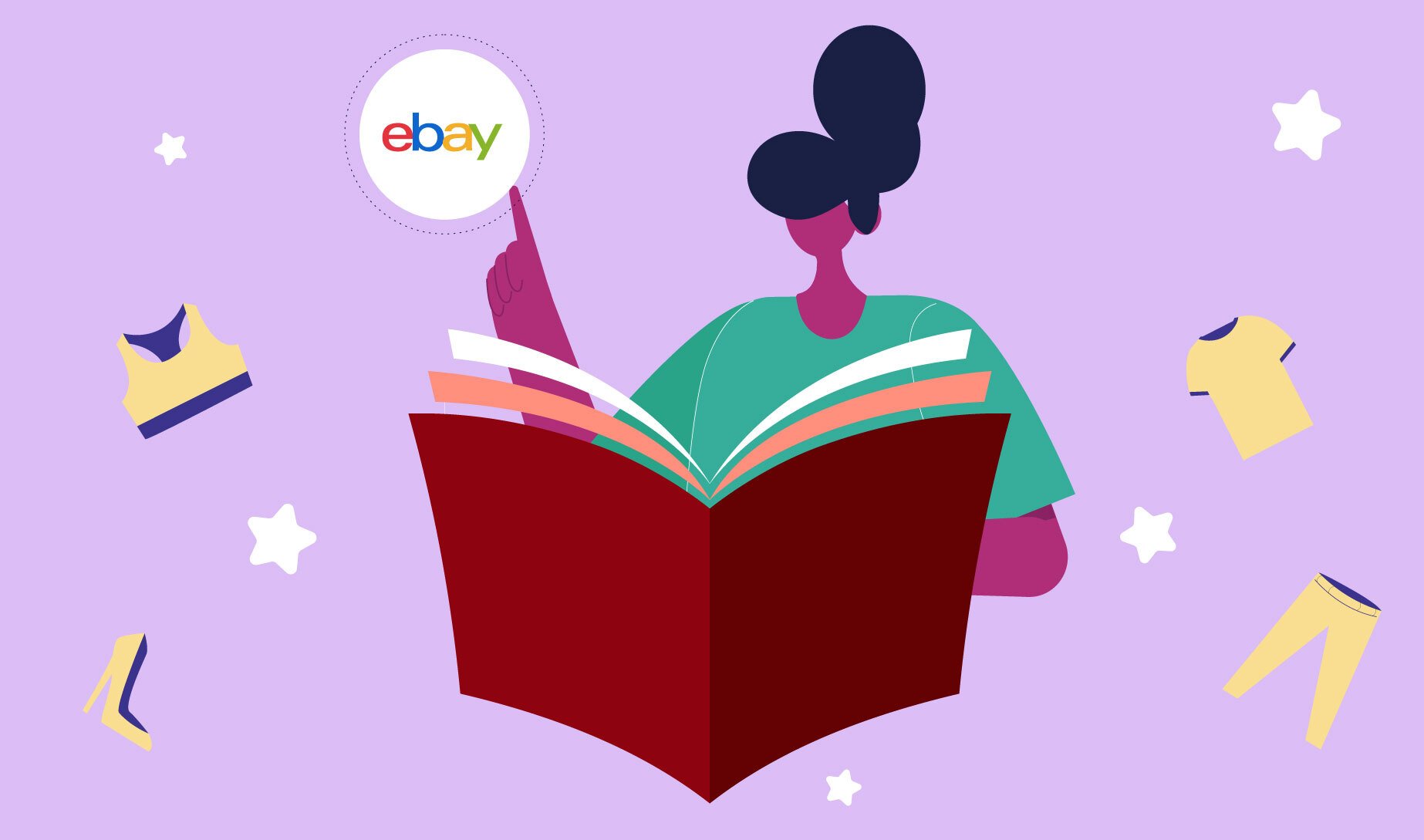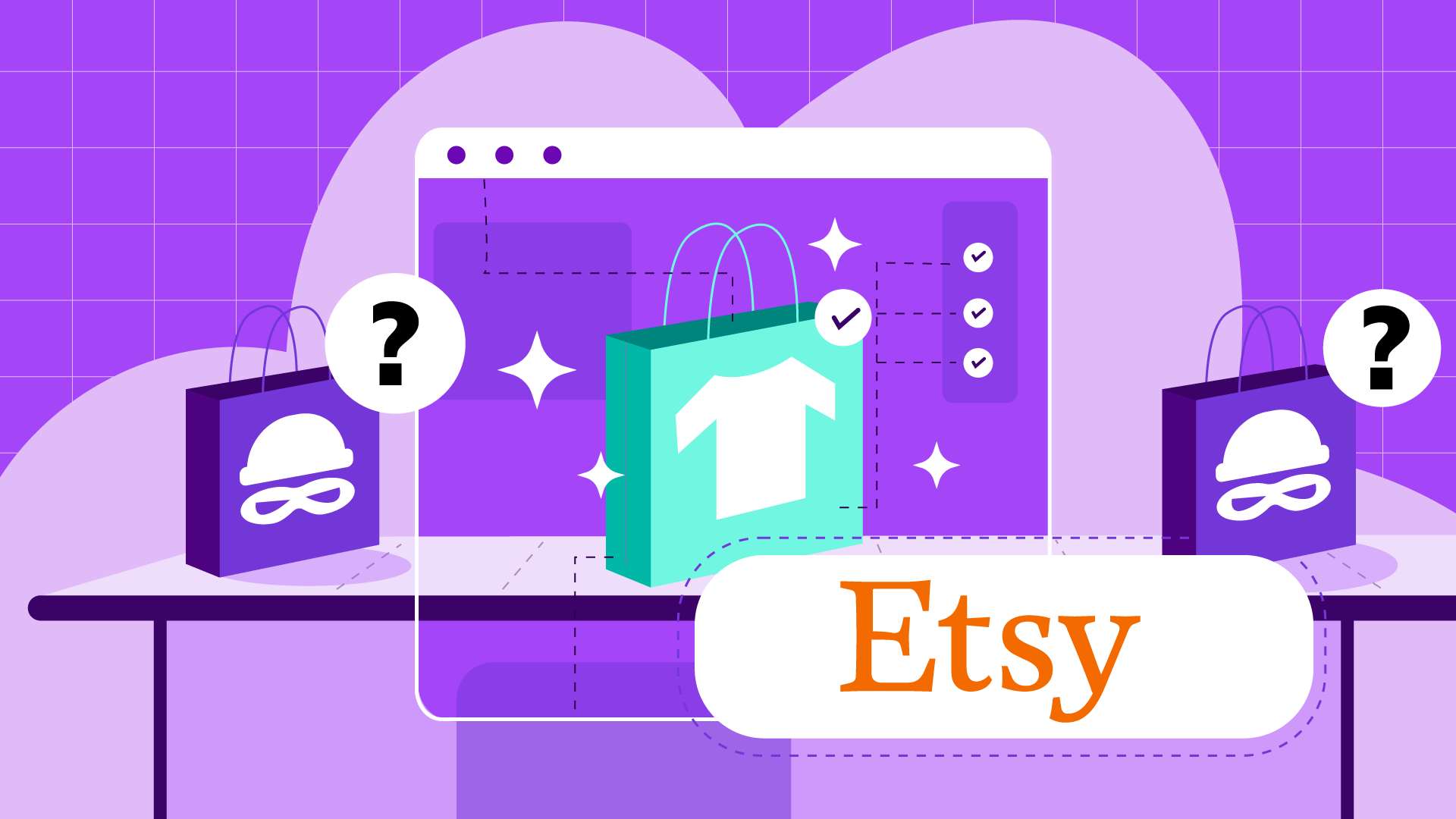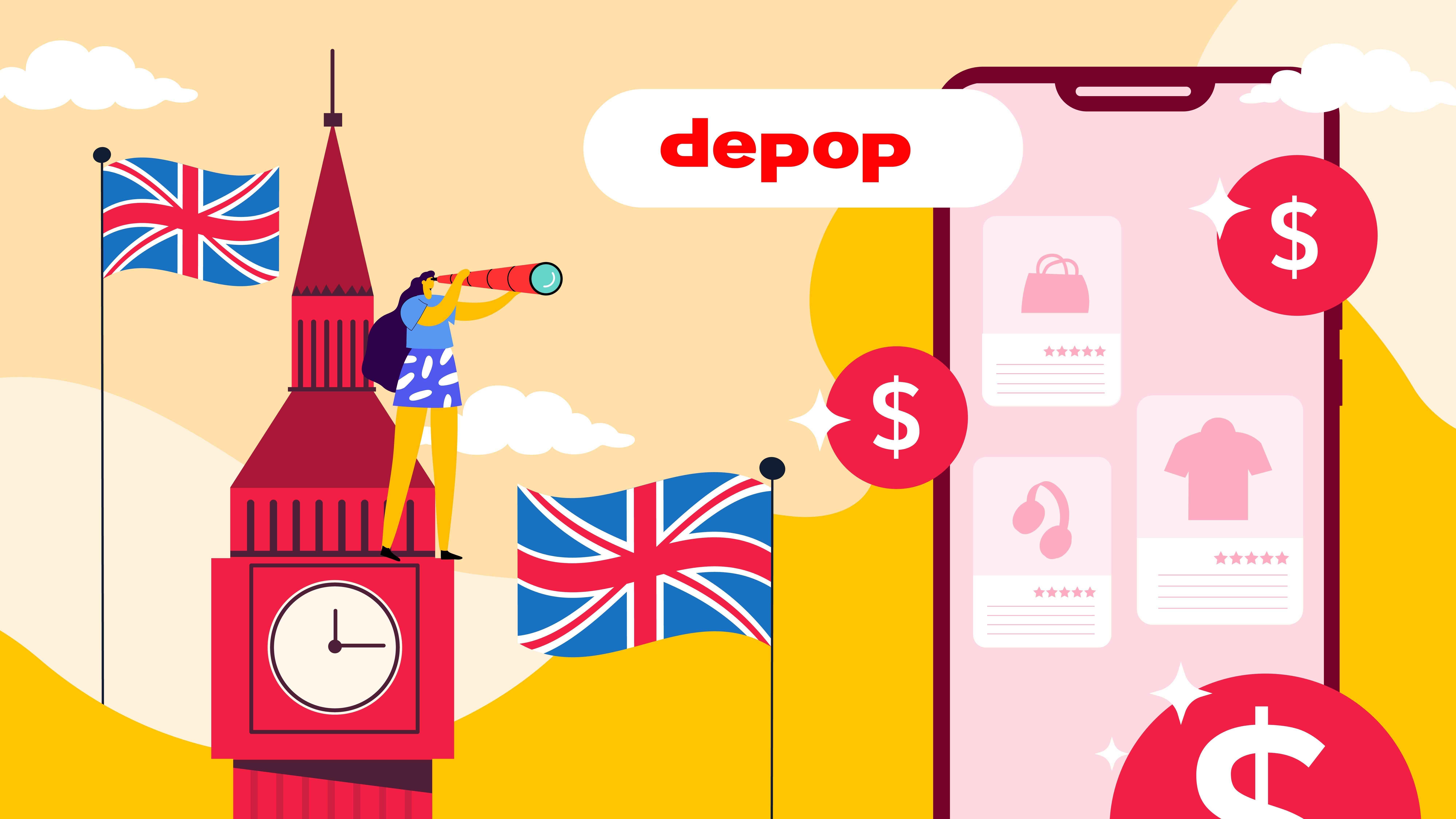If you’re someone who’s curious about the world of reselling, you might have come across eBay. Selling on eBay can be a fun and rewarding experience that helps you make some extra cash from the comfort of your home. However, things can go south sometimes.
Occasionally, you might run into buyers who’ll leave you at your wits’ end. Be it issues with non-payment, unreasonable demands, or abusive messages, knowing how and when to block a buyer can help protect your business and save you from headaches. In the UK, eBay has a variety of tools that allow sellers to block problematic buyers. You can also set restrictions to prevent future issues from popping up.
While most transactions run smoothly, understanding when to block a buyer can save you time and frustration. It also allows you to focus on positive interactions with other genuine buyers. This guide will walk you through the steps of when blocking is necessary and how to do it.
Key Takeaways
- eBay lets you block problematic buyers for a variety of reasons
- If you don’t want to block them yourself, you can report them to eBay
- You can unblock a buyer at any time if you change your mind or the situation improves.
- Blocking a buyer prevents them from bidding or purchasing your items
- Blocked buyers can still view your listings.
- eBay allows you to customise your buyer requirements to avoid future issues.
- Using Vendoo's crosslisting feature can increase your chances of finding reliable buyers.
- Cross-listing can reduce the stress of dealing with problem buyers by reaching more potential customers across multiple marketplaces.
How Does eBay Work?
Before you block an eBay buyer, you should get yourself up to speed on how the platform works. eBay is an online marketplace where sellers can list items for sale, and buyers can bid in auctions or purchase items at a fixed price.
It's a straightforward platform that allows users to sell virtually anything—from everyday items to rare collectables. Sellers list their products, including descriptions, photos, and prices, while buyers browse and purchase items, either by placing bids in auctions or buying them directly through "Buy It Now."
Here are some key eBay features for sellers:
- Auctions and Fixed-Price Listings: Items can be sold through auctions, where buyers bid for them. If you want to make a quick sale, you can also try fixed-price listings.
- Payment and Shipping: Once the buyer makes a purchase, they’ll pay through secure payment methods like PayPal or eBay’s Managed Payments. Then, you can ship the item to them.
- Seller Protection: eBay offers a Buyer Protection Programme. It’s a great tool to create a safe selling environment for everyone.
Managing Buyer Interactions: Although eBay provides a platform to connect with millions of potential customers, not every buyer interaction is smooth. There are some cases where buyers act against the seller's interests, such as:
- Repeated non-payment
- Unreasonable demands
- Abusive communication
- Blackmail or threats of negative reviews
eBay gives sellers the option to block such buyers. This feature allows sellers to prevent these buyers from purchasing from them in the future and helps maintain a positive selling experience.
Want to learn more about how you can make the most of your eBay experience? Check out Start a Reselling Business Online in 9 Steps.
When Should You Consider Blocking a Buyer?
Blocking a buyer should be a last resort. However, certain situations make it necessary to protect your seller account and reputation. That’s where the block button comes in handy.
Here are some scenarios where blocking a buyer might be appropriate:
- Non-Payment: If a buyer frequently wins auctions or commits to purchases but fails to pay, beware. It's a clear red flag. This can waste your time and prevent genuine buyers from buying your items.
- Unreasonable Demands: Some buyers may try to pressure you into lowering prices. They might ask for discounts or freebies. If these demands escalate, blocking may be the best option.
- Harassment or Abusive Behavior: Buyers who send rude, offensive, or threatening messages should be blocked immediately. This helps protect your safety and mental well-being.
- Repeated Returns or Refund Requests: If a buyer consistently returns items or claims refunds under questionable circumstances, it could be fraudulent activity.
- Suspicious Activity: If you notice patterns like a buyer purchasing multiple items but never following through or constantly reporting problems, blocking them can save you a lot of trouble.
How to Block a Buyer on eBay UK
Blocking a buyer on eBay can be an effective way to protect yourself from troublesome transactions or difficult customers. If you’ve encountered a buyer who consistently causes issues, such as non-payment or unreasonable demands, eBay offers a simple way to prevent future sales to them.
Steps to Block a Buyer on eBay UK:
- Log in to Your eBay Account
- Go to seller dashboard
- Go to the Blocking Page or type "block a buyer" in the help section.
- Enter the Buyer’s Username:
- Add multiple usernames if necessary.
- Submit and Save
Some things to keep in mind:
- Blocking a buyer doesn't remove any feedback they’ve left on your account.
- Blocking doesn’t cancel any ongoing transactions with them.
- If the issue with a buyer is serious or escalates, you can report them to eBay for further investigation.
Blocking difficult buyers can save you time and stress. It helps you focus on legitimate, hassle-free transactions. It is a simple process that helps maintain control over your eBay sales experience.

When Should You Block a Buyer on eBay UK?
While blo cking a buyer should not be your first course of action, there are certain situations where it becomes necessary. Blocking is a useful tool when dealing with repeat offenders who cause disruptions or damage your seller reputation.
cking a buyer should not be your first course of action, there are certain situations where it becomes necessary. Blocking is a useful tool when dealing with repeat offenders who cause disruptions or damage your seller reputation.
Here are some situations where blocking a buyer is the way to go:
- Non-Payment: If a buyer repeatedly wins your auctions or makes offers on your items but fails to complete payment, sever your ties. Blocking them keeps you from wasting any more of your time and effort.
- Unreasonable Demands: Some buyers tend to make unreasonable requests like asking for excessive discounts or free shipping after the sale has been finalised.
- Excessive Negative Feedback Threats: If a buyer threatens to leave negative feedback unless you meet certain demands (which violates eBay policy), steer clear of them. This is blackmail. You might want to block them to avoid future trouble.
- Abusive or Harassing Messages: Any form of abusive or harassing communication is a red flag. Blocking the buyer ensures they can't interact with you again.
- Suspicion of Fraud: If you notice suspicious activity, such as a buyer requesting to send payment outside of eBay or making strange offers, blocking them could save you from potential fraud.
Blocking these types of buyers can help protect your reputation and prevent problematic transactions. It also ensures that your focus remains on genuine, fair buyers.
Situations Where Blocking Might Not Be Appropriate
While blocking can be a powerful tool for managing difficult buyers, there are some scenarios where it might not be the best course of action. It’s important for you to assess the situation before you hit the block button.
Here are some situations where blocking may not be appropriate:
- One-Time Disagreements: Occasional disputes or misunderstandings should be dealt with with grace, especially if they occur for the first time. Communication can help you sort out the issue without blocking.
- Shipping Delays or Errors: If a buyer complains about shipping delays or issues beyond your control, it's better to explain the situation. Try to resolve it rather than immediately blocking them.
- Reasonable Refund or Return Requests: If a buyer is asking for a refund or return within eBay’s guidelines, blocking them can appear unprofessional. It’s best to handle the issue in line with your return policies.
- Neutral Feedback: A neutral review isn't always a cause for concern. This is especially true if the feedback is constructive and aimed at improving future transactions.
- Lack of Communication: Sometimes buyers are slow to respond. This may not be intentional. If the buyer later follows through or clarifies their intentions, blocking them could be an overreaction.
Blocking should generally be a last resort for dealing with buyers who constantly violate your policies or eBay’s rules. For minor issues, try to resolve matters through clear communication first.
Other Options to Consider Before Blocking Someone
Blocking a buyer can feel like a definitive step, but there are alternative methods to handle problematic situations. These can help resolve issues without taking such a drastic measure. Here are a few options to explore before blocking a buyer on eBay:
- Communicate Directly: Reach out to the buyer via eBay messaging to clarify any misunderstandings or disputes. A polite, professional message can often resolve issues without letting things get too ugly.
- Offer Partial Refunds or Discounts: If the buyer has concerns about the item (e.g., minor defects or delays), offering a partial refund or discount can save the day and help maintain good relations without the need for blocking.
- Adjust Your Return Policy: For frequent return requests or disputes about product quality, consider tweaking your policies. This helps address concerns and prevent future issues with buyers.
- Use eBay’s Resolution Centre: If a buyer opens a case, you should let eBay mediate. Their team can offer solutions that keep both parties satisfied without needing to block the buyer.
- File a Report with eBay: For harassment or more serious issues, reporting the buyer to eBay may help. eBay can intervene or take action without you having to manage it directly.
- Restrict Bidding and Buying: You can set buyer requirements to restrict certain problematic buyers (e.g., those with unpaid item strikes) from bidding on or buying your items.
- Set Up Auto-Decline for Offers: If you frequently deal with low-ball offers, setting up an automatic decline for offers below a certain amount can prevent annoying negotiations.
Taking these steps can help you find a solution while maintaining a positive relationship with the buyer. Blocking should ideally be the last resort when other options fail to resolve the problem.
Want to scam proof yourself against scammers? Check out Common eBay Scams & How To Avoid Them.
What Happens After You Block a Buyer?
So, you finally pulled the plug on that annoying buyer and blocked them. What now? Blocking a buyer on eBay is a straightforward process. However, it's important to understand what happens afterwards. This helps ensure you manage your account effectively. Here’s what you can expect:
- Blocked Buyers Cannot Purchase Items: Once blocked, the buyer will not be able to buy from you, place bids on your auctions, or make offers on your listings. This prevents further transactions with them.
- They Cannot Message You: A blocked buyer won’t be able to contact you through eBay’s messaging system. This is useful if you're dealing with harassment or aggressive buyers.
- Existing Transactions Still Need to Be Completed: Blocking someone does not cancel any ongoing sales. If they have already bought an item from you, you’re still obligated to fulfil that order or resolve any pending issues related to the transaction.
- They Can’t Leave Feedback Anymore: While they can’t leave feedback on new listings, they can still leave feedback for transactions that happened before you blocked them. If you think that the buyer is leaving retaliatory feedback, you can report it to eBay for removal.
- The Block Doesn’t Have to Be Permanent: If you decide to unblock a buyer later on, it’s easy to do. Simply remove them from your blocked buyer list. Just remember to review any potential issues before lifting the block.
- You Can Still Be Reviewed by eBay: Blocking buyers doesn’t make you immune to complaints or reviews from eBay. If you frequently block buyers without just cause, it may impact your seller reputation on the platform.
How to Unblock a Buyer
If you’ve blocked a buyer but later decide to give them another chance, unblocking them is just as easy. Here’s a step-by-step guide to removing someone from your blocked list:
- Go to the Blocked Buyers Page: Log into your eBay account and go to the "Blocked Buyers List" page. You can access this from your eBay Seller Hub or by searching “blocked buyers” in the eBay Help section.
- Find the Blocked Buyer: On the page, you’ll see a list of all the users you’ve previously blocked. Locate the username of the buyer you wish to unblock.
- Remove the Username: Simply delete the username of the buyer from the list. Make sure the username is correctly removed before proceeding.
- Save Changes: After removing the buyer’s name, click “Submit” or “Save” to confirm your changes.
- Confirm Unblock: Once saved, the buyer will be able to purchase, bid on, or message you again.
Key Tips:
- Keep Track of Unblocked Buyers: Make sure you keep an eye on interactions after unblocking a buyer to avoid repeat issues.
- Temporary Blocks: Use blocking as a temporary measure if you feel that the situation could improve in the future.
Tips for Handling Problem Buyers
Dealing with difficult buyers can be tricky, but here are some unique strategies to help you manage these situations without letting them escalate:
- Stay Professional and Polite
Even if the buyer is rude or unreasonable, try to be polite. A professional tone can often defuse the situation. Your calm, respectful responses show that you take issues seriously. - Ask for Clear Communication
If a buyer leaves vague complaints, politely ask them to clarify the problem. This helps you understand the issue better and shows that you’re willing to address their concerns head-on. - Offer Alternative Solutions
Instead of instantly offering a refund or return, suggest other options, like partial refunds or replacements. This might satisfy both parties and avoid a full refund process. - Stick to eBay’s Guidelines
When issues arise, ensure you’re following eBay’s guidelines for resolving disputes. Pointing out that you’re adhering to the platform’s policies adds a layer of professionalism and protection. - Use the Resolution Centre Wisely
If the problem can’t be resolved through messaging, take the issue to eBay’s Resolution Centre. This makes it clear that you’re taking the issue seriously and are willing to work with a structured process. - Document Everything
Always keep a record of your communications with problem buyers. This can protect you in case the situation escalates or a dispute is raised. - Know When to Walk Away
Some buyers will never be satisfied. Know when to stop engaging, especially if the buyer is being unreasonable or hostile. At this point, blocking the buyer could be the best course of action. - Use Vendoo’s Crossposting to Broaden Your Audience
Don’t let one difficult buyer ruin your day! By crossposting your listings across multiple platforms with tools like Vendoo, you can diversify your sales and reduce dependency on any single buyer.
Ready to kickstart your eBay journey? Equip yourself with 8 Expert eBay Tips: How to Make More Sales on eBay.
Block Stressful Buyers and Find New Ones With Vendoo
Navigating eBay can be both rewarding and challenging, especially when it comes to managing difficult buyers. While blocking a buyer should always be a last resort, knowing when and how to do it—and exploring alternative solutions first—can save you a lot of hassle. It’s important to protect your business without feeling like you're losing valuable opportunities.
You might feel a little upset after blocking a buyer. After all, nobody wants to lose a client. But don’t worry, eBay is just one avenue for your business! Did you know that there are ways to find more buyers?
Luckily, tools like Vendoo can make managing your eBay listings (and beyond) much easier. By cross-listing your clothing on multiple platforms with Vendoo, you can expand your reach, attract more buyers, and avoid relying on just one marketplace for sales. That way, even if you have to block a buyer on eBay, you’ll still have plenty of other potential buyers across different platforms, keeping your business running smoothly and stress-free.
Vendoo can streamline your selling process, allowing you to manage your listings across multiple platforms effortlessly. This not only helps you reach a broader audience but also reduces the stress of dealing with problem buyers.
Ready to give Vendoo a shot? Get started for free today!
FAQs
Can a blocked buyer still view my listings on eBay?
Yes, a blocked buyer can still view your listings. However won’t be able to place bids or purchase items from you.
How many buyers can I block on eBay?
You can block up to 5,000 buyers on eBay by adding them to your blocked buyer list.
Can a blocked buyer contact me on eBay?
No, once a buyer is blocked, they can’t send you messages or ask questions about your listings.
Can I block a buyer from specific items but not others?
No, when you block a buyer, they are unable to purchase or bid on any of your items, not just specific ones.
Can I block buyers from specific countries?
Yes, you can set buyer requirements to block buyers from specific countries or regions from purchasing your items.
What happens if a blocked buyer tries to bid on my item?
If a blocked buyer tries to place a bid or buy an item, they will receive a notification stating they are blocked from purchasing from your store.
Can a buyer know if they've been blocked?
eBay does not directly notify buyers when they have been blocked, but they may figure it out if they attempt to purchase or bid and are restricted.







